Laurian della:LOST IN TRANSLATION, 2014
Laurian della:LOST IN TRANSLATION, 2014
30 พ.ค.,2016 Jason
- During my time teaching English in Thailand, I have been so proud of how much vocabulary my students have learned. However, there are still some English words that seem to get a little lost—or rather, transformed—in translation and pronunciation.
- For example, “toes” become “foot fingers,” which actually makes a lot of logical sense if you think about it. A “seal” turns into a “water cat,” and honestly, that’s not far off if you consider “sea lion.” A “flashlight” becomes a “sun stick,” and “sea horse” is translated as “water horse” because in Thai, the word for seahorse is ma nam — ma meaning horse and nam meaning water. I can understand why that one causes confusion.
- Then there’s “Spiderman,” which somehow becomes “Spitman.” I can only imagine what that superhero’s costume would look like! “Gloves” are called “hand socks,” which fits the same pattern as “foot fingers.”
- One of the funniest mix-ups happened with “beauty” and “booty.” The vowel sounds ū and oo may seem similar, but they mean completely different things. After hearing several students say “Teacher, you have much booty,” I realized I needed to go back and review vowel sounds. The students meant to compliment my beauty, but the result was quite different!
- Another memorable moment was when I asked a student, “Why didn’t you bring your notebook?” The English word “Why” sounds exactly like the Thai word “Wai,” which refers to a polite bow used in greeting or showing respect. So when I repeated, “Why? Why?” my student thought I was telling him to perform three wais. He responded by bowing three times in front of the class! Once I understood what was happening, I couldn’t help but laugh.
- Teaching across languages is full of these small, funny misunderstandings. They remind me that while words may get lost in translation, laughter always finds its way through.
BKM
Blog Category
ล่าสุด
-
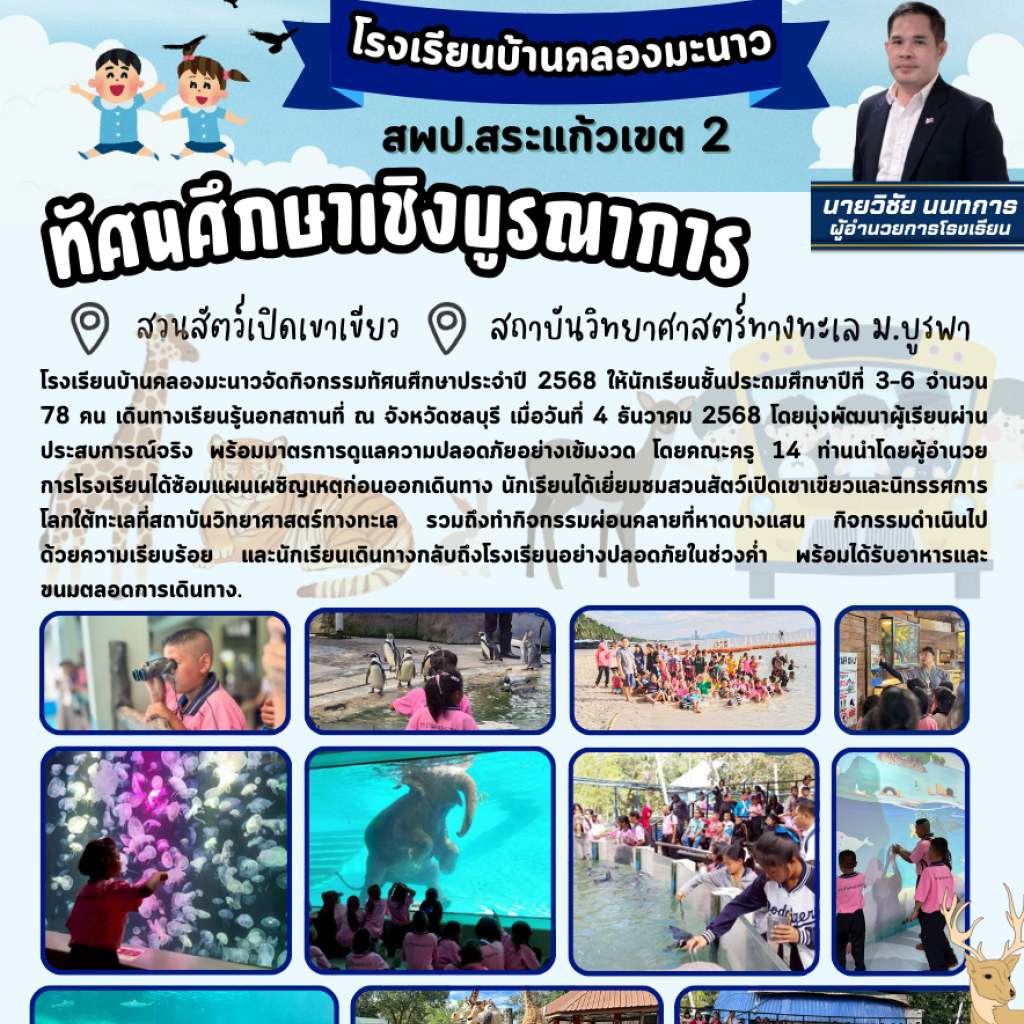 ทัศนศึกษาเชิงบูรณาการ จังหวัดชลบุรี โรงเรียนบ้านคลองมะนาวจัดกิจกรรมทัศนศึกษาประจำปี...
ทัศนศึกษาเชิงบูรณาการ จังหวัดชลบุรี โรงเรียนบ้านคลองมะนาวจัดกิจกรรมทัศนศึกษาประจำปี... -
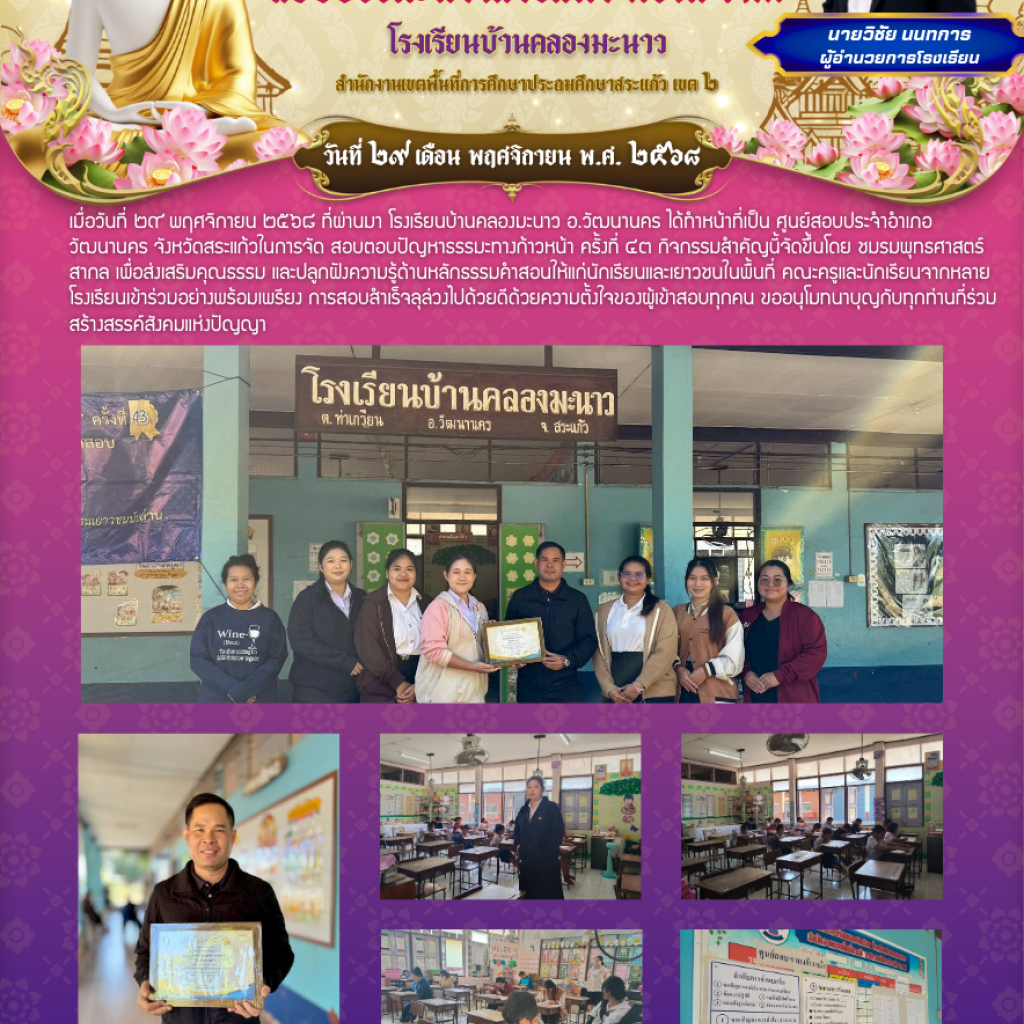 สอบธรรมะทางก้าวหน้า ครั้งที่ ๔๓ จดหมายข่าวประชาสัมพันธ์ ? โรงเรียนบ้านคลองมะน...
สอบธรรมะทางก้าวหน้า ครั้งที่ ๔๓ จดหมายข่าวประชาสัมพันธ์ ? โรงเรียนบ้านคลองมะน... -
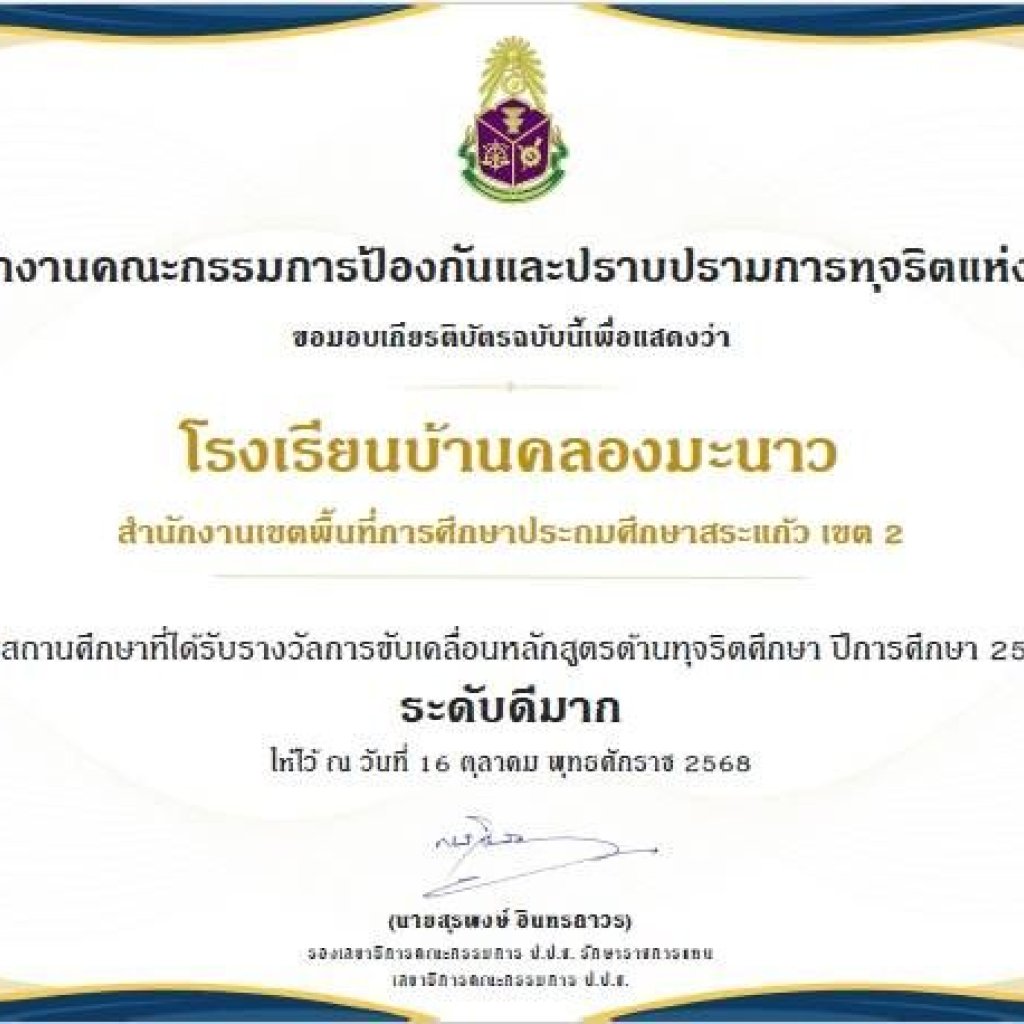 โรงเรียนบ้านคลองมะนาว คว้าสถานศึกษาที่ได้รับรางวัล “ระดับดีมาก” ด้านหลักสูตรต้านทุจริตศึกษา จาก ป.ป.ช. โรงเรียนบ้านคลองมะนาว คว้าสถานศึกษาที่ได้รับราง...
โรงเรียนบ้านคลองมะนาว คว้าสถานศึกษาที่ได้รับรางวัล “ระดับดีมาก” ด้านหลักสูตรต้านทุจริตศึกษา จาก ป.ป.ช. โรงเรียนบ้านคลองมะนาว คว้าสถานศึกษาที่ได้รับราง... -
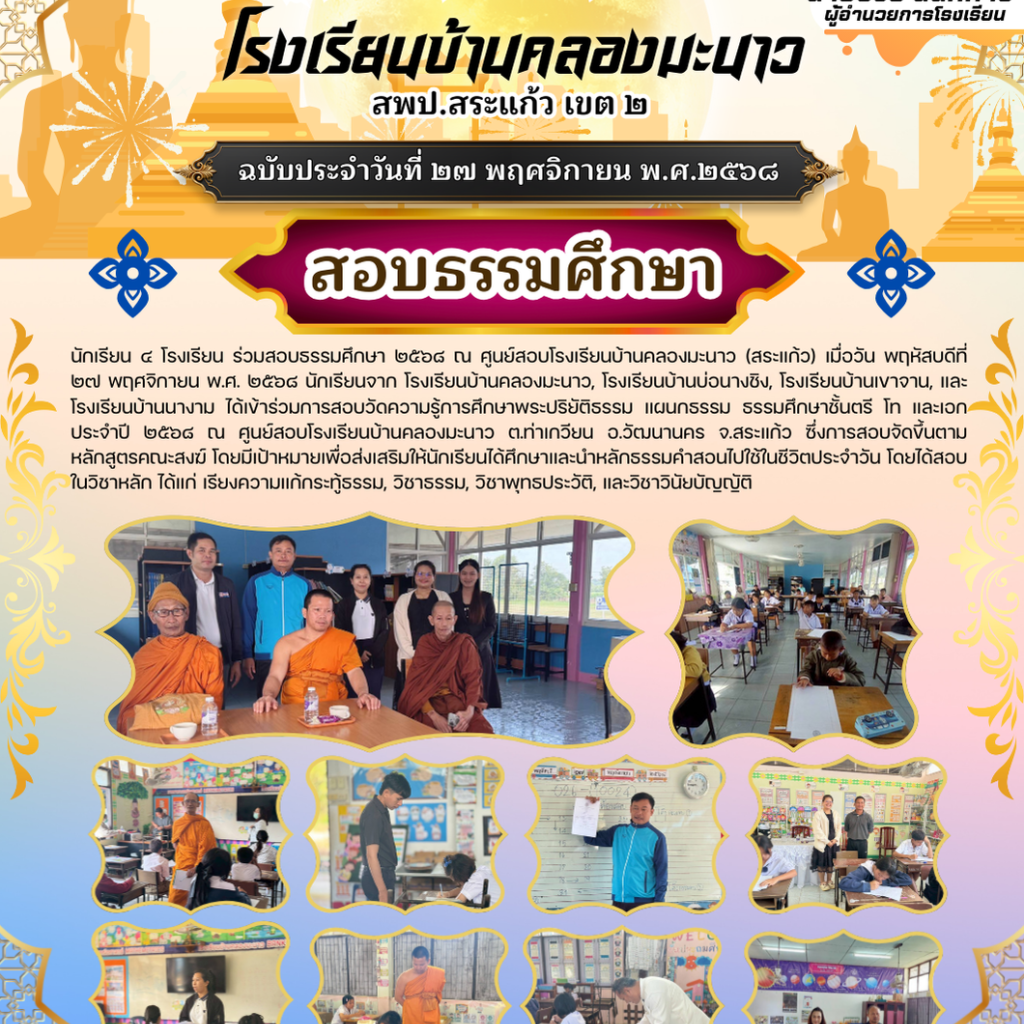 สอบธรรมศึกษา ๒๕๖๘ ณ ศูนย์สอบโรงเรียนบ้านคลองมะนาว ข่าวประชาสัมพันธ์ โรงเรียนบ้านคลองมะนาว นักเร...
สอบธรรมศึกษา ๒๕๖๘ ณ ศูนย์สอบโรงเรียนบ้านคลองมะนาว ข่าวประชาสัมพันธ์ โรงเรียนบ้านคลองมะนาว นักเร... -
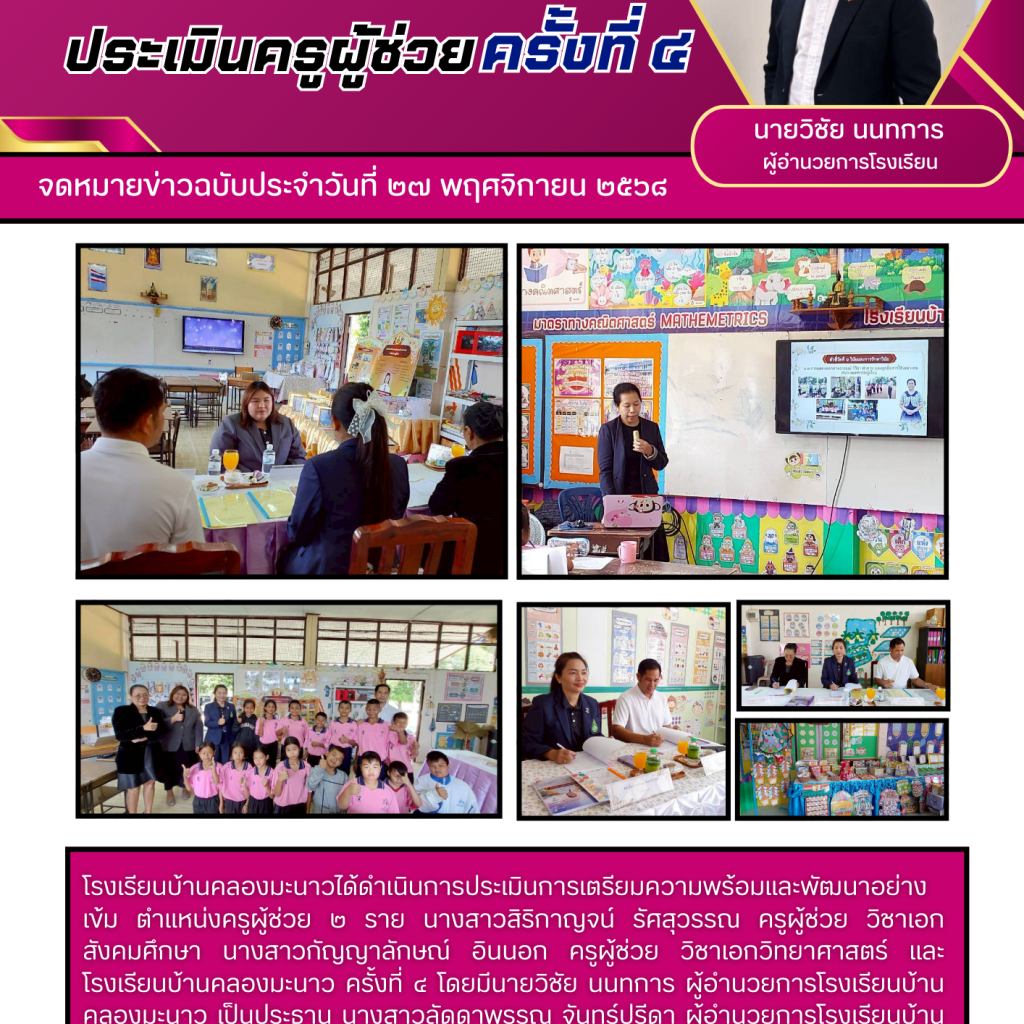 ประเมินครูผู้ช่วย ครั้งที่ ๔ วันที่ 27 พฤศจิกายน 2568 โรงเรียนบ้านคลองมะนาว...
ประเมินครูผู้ช่วย ครั้งที่ ๔ วันที่ 27 พฤศจิกายน 2568 โรงเรียนบ้านคลองมะนาว...


